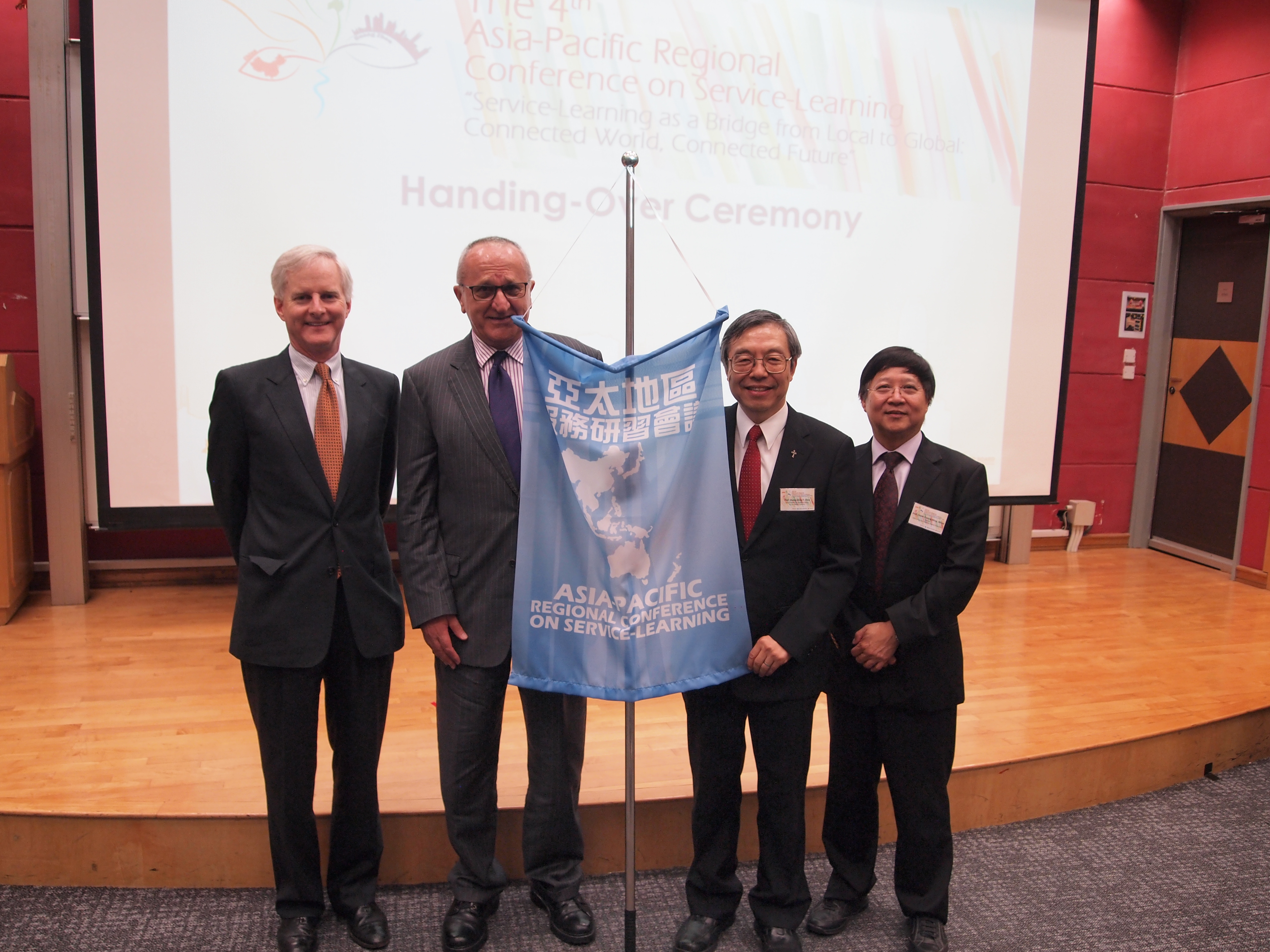Location
MD202, Paul Cardinal Shen Medical Building, Fu Jen University
Start Date
29-5-2015 3:00 PM
End Date
29-5-2015 4:10 PM
Description
In 2014, Youth Development Administration (YDA), Ministry of Education in Taiwan launched a half-day program called "inspection and connection of schools and community organizations workshop" which was taken place for 10 times over Taiwan (i.e., 3 times in northern, central and southern Taiwan, once in eastern Taiwan). The participants included local school teachers (from elementary schools to colleges), school administrators and NPO staff. They are regarded as facilitators who can shape their holistic efforts through collaborative partnerships. These partnerships give service learning programs a structure to mobilize people and resources to create changes and to develop learning opportunities for students. Therefore, the purpose of the workshop was to strengthen the service-learning partnership between schools and community so that students' engagement in service leaning through community partnerships can be widely advocated.
At the end of the workshop, a study of service learning facilitators' perception of student volunteers was conducted. The study focused on the assessment of the performance of student volunteers and their impacts on communities. A self-report questionnaire was employed.
A sample of 376 participants was collected with 37.0% from schools, 28.5% from NPOs, 34.5% from other social groups. There were 76.1% female and 23.7% male. 57.2% of the service learning programs were educational projects, 34.5% about human service, and 30.1% about environmental issues.
The survey showed that the facilitators agreed student volunteers were able to cooperate with others (69.9% agreed), eliminate stereotype toward others (66.2% agreed) and communicate with others well (64.7% agreed). However, the facilitators did not agree that student volunteers had the ability to fully understand the need to change some public policies (48.4%), to understand the community issues well (43.3%) and to be a decision-maker (42.3%). The implication of the findings will be discussed in the presentation of the paper.
Recommended Citation
Yeh, W. H. (2015, May). Community service-learning facilitators' perceptions of student volunteers. Paper presented at the 5th Asia-Pacific Regional Conference on Service-Learning: Love Journey: Community Engagement through Service-Learning, Fu Jen Catholic University, Taiwan.
Included in
Community service-learning facilitators' perceptions of student volunteers
MD202, Paul Cardinal Shen Medical Building, Fu Jen University
In 2014, Youth Development Administration (YDA), Ministry of Education in Taiwan launched a half-day program called "inspection and connection of schools and community organizations workshop" which was taken place for 10 times over Taiwan (i.e., 3 times in northern, central and southern Taiwan, once in eastern Taiwan). The participants included local school teachers (from elementary schools to colleges), school administrators and NPO staff. They are regarded as facilitators who can shape their holistic efforts through collaborative partnerships. These partnerships give service learning programs a structure to mobilize people and resources to create changes and to develop learning opportunities for students. Therefore, the purpose of the workshop was to strengthen the service-learning partnership between schools and community so that students' engagement in service leaning through community partnerships can be widely advocated.
At the end of the workshop, a study of service learning facilitators' perception of student volunteers was conducted. The study focused on the assessment of the performance of student volunteers and their impacts on communities. A self-report questionnaire was employed.
A sample of 376 participants was collected with 37.0% from schools, 28.5% from NPOs, 34.5% from other social groups. There were 76.1% female and 23.7% male. 57.2% of the service learning programs were educational projects, 34.5% about human service, and 30.1% about environmental issues.
The survey showed that the facilitators agreed student volunteers were able to cooperate with others (69.9% agreed), eliminate stereotype toward others (66.2% agreed) and communicate with others well (64.7% agreed). However, the facilitators did not agree that student volunteers had the ability to fully understand the need to change some public policies (48.4%), to understand the community issues well (43.3%) and to be a decision-maker (42.3%). The implication of the findings will be discussed in the presentation of the paper.
